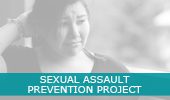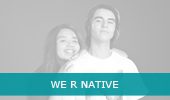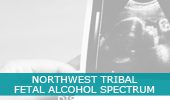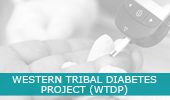NATIVE IT’S YOUR GAME (NIYG)
Native It’s Your Game (NIYG): is an online, 13 lesson, culturally-appropriate sexual health curriculum that was adapted for American Indian and Alaska Native (AI/AN) middle school youth, 12-14 years-old. Each lesson lasts between 30-45 minutes, and includes a mix of videos, interactive activities, quizzes, animations, and journal activities. Lessons cover healthy relationships, puberty and reproduction, HIV/STIs, pregnancy, refusal skills-training, and contraception. The study was funded by the Centers for Disease Control and Prevention (CDC) and the Administration for Children and Families (ACF) as a five-year study.
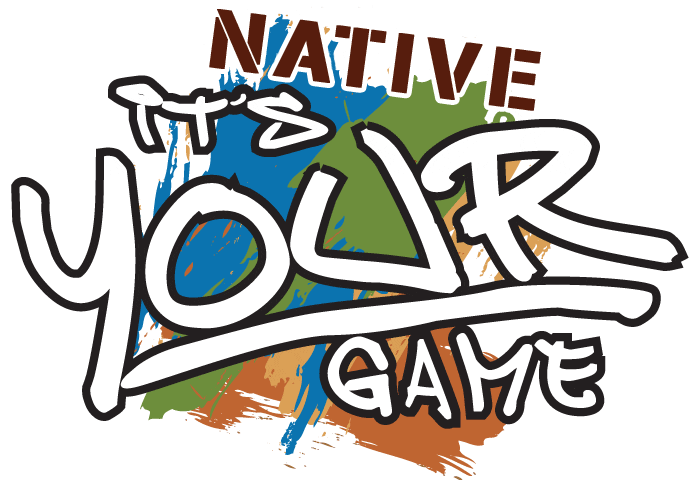
- Goals
- Partners
- Adaptation
- Native It's Your Game Intervention
- Efficacy Trial
- Articles and Reports
- Dissemination Plan
Our goal was to design an evidence-based sexual health curriculum that reflects and includes the experiences of Native youth and the communities they come from. One that weaves the diverse faces, voices, experiences, and cultural values that can be shared with not only tribal communities, but with other multicultural communities across the US. We have taken a community approach, to solve a community problem.
The goal of the Native It’s Your Game study was to adapt and evaluate the effectiveness of the Internet-based HIV/STI & pregnancy prevention program for middle school youth (12-14 years old) in three geographically dispersed AI/AN communities in Alaska, Arizona & Pacific Northwest.
Back in 2009, members of the Red Talon STD/HIV Prevention Coalition asked the Northwest Portland Area Indian Health Board to look at technology-based interventions as a possible avenue to deliver sexual health interventions to our Native youth. At the time, we really didn’t know to what extent these interventions would be accessible, acceptable, or relevant to Native youth.
This prompted a mixed methods research project, through which we discovered: 1) that 76% of NW AI/AN youth reported having searched online for health information, compared with 55% of U.S. 7th–12th graders, and 2) several tech-based interventions that could be adapted for AI/AN youth.
Using a rapid response voting system, our Coalition members unanimously selected It’s Your Game…Keep It Real, a sexual health curriculum created by the University of Texas-Houston School of Public Health. The Native It’s Your Game research team was thus born. As a group of tribal educators and sexual health experts, we came together with the Alaska Native Tribal Health Consortium (ANTHC), the Intertribal Council of Arizona, Inc. (ITCA), and the University of Texas-Houston School of Public Health to carry out this project.
The Native It’s Your Game intervention was adapted from an evidence-based intervention called It’s Your Game…Keep It Real, designed by the University of Texas-Houston School of Public Health.
The study consisted of three phases:
- Phase 1 – Years 1 & 2: Usability and Adaptation
- Phase 2 – Years 3 & 4: Efficacy Trial
- Phase 3 – Year 5: Evaluation of a Parent/Child Component
Year 1
During the first year of the adaptation phase, we started by working to gain community support by meeting with tribal leaders and community stakeholders to obtain tribal and IRB approvals. We reviewed and researched existing resources for AI/AN youth so that we could better understand the successes and weaknesses of existing programs for AI/AN youth. We also identified culturally-appropriate content and learning strategies.
We conducted usability testing of the original intervention: It’s Your Game…Keep It Real. We recruited 90 youth and adult stakeholders (30 per region) to assess the ease of use, acceptability, credibility, motivational appeal and applicability of system. Those usability sessions gave us the information needed to revise the conceptual framework of the program to better align it with the personal values, outcome expectations, perceived self-efficacy, and environmental factors that influence Native youth.
Year 2
During year two of the adaptation phase we began to develop, design, and produce documents and activities for adaptation. The team gathered feedback from tribal communities throughout the three different regions to help guide the addition and modification of content into the curriculum. That content included videos featuring Native youth, elders, and a health education “sexpert” who reflected tribal and youth perspectives.
Elders introduce each lesson to provide a Native wellness framework around sexual health. They provide cultural context to sensitive topics like anatomy and physiology, and express a more traditional, holistic view of sexual health, integrating physical, social, mental, and spiritual dimensions for health and wellbeing.
Again we conducted usability testing, only this time with the adapted program: Native It’s Your Game. We recruited 90 AI/AN youth and adult stakeholders (30 participants per region) and again asked questions about ease of use, acceptability, credibility, motivational appeal, and applicability of the curriculum.
The 13-lesson, middle school sexual health curriculum can be accessed via the Internet, or can be downloaded.
Along with the curriculum, the Native It’s Your Game evidence-based intervention includes a parent/child component designed to encourage communication between the child and their care giver. Wanting Native IYG to be a holistic curriculum, we needed to involve the community. These activities include parent and teen newsletters, which give tips on how to talk to your parents or teens about sensitive topics. Homework activities were designed to facilitate dialogue between the parent and child around dating, drugs and alcohol, and sexual behavior. We also provide fact sheets that link to specific lessons in Native IYG.
In total, the parent/child component of Native IYG consists of:
- Three Parent and Three Teen Newsletters
- Three Take Home activities
- Ten Factsheets
During the second phase of the study, the curriculum was evaluated using a Randomized Controlled Trial (RCT) across Alaska, Arizona, and the Pacific NW (Oregon, Washington, and Idaho).
Twenty-seven urban and rural tribal sites enrolled in the study. Sites implemented the curriculum in public and tribal middle schools, tribal health centers, after-school programs, and Boys & Girls Clubs. Site coordinators were trained in recruitment, data collection, and received their human subjects ethics research certification through Collaborative Institutional Training Initiative (CITI).
Sites were randomly assigned to either:
- Native It’s Your Game: 13 online lessons, lasting 30-45 minutes each.
- Control Group: 13 online lessons covering: healthy eating, drugs and alcohol, tobacco use, and protection of hearing, lasting 30-45 minutes each.
Participating AI/AN middle school youth took three web-based surveys at: baseline, immediately following the program, and at 12-months.
Sites that participated in the parent/child evaluation received:
- The Native It’s Your Game intervention
- A kick-off event
- Parent Newsletters/Teen Newsletters
- Take Home activities
- A celebration event
- Service linkage support – connecting youth to local health services
Evaluation Findings. Altogether, the research team surveyed 574 AI/AN youth 12 to 14 years old from 27 study sites in Alaska, Arizona, and the Pacific Northwest. The analytical sample was 55.1% female, with a mean age of 13.2 years (standard deviation = 1.06 years).
Among youth surveyed, 6.5% were sexually experienced. Youth who were older in the age range had more knowledge about HIV/STIs, and those who had experienced dating violence victimization in the past year were more likely to be sexually experienced.
AI/AN youth were less likely to be sexually active if they had lower intentions to have sex in the next year, avoided risky situations (like parties with alcohol, or spending time alone with friends of the opposite sex), did not use alcohol, experienced parental monitoring, and believed their friends had similar beliefs about sex.
Five psychosocial variables (of 16 examined in the study) were significantly impacted when youth completed the NATIVE IYG program.
Youth who participated in the program reported:
- More reasons not to have sex
- Better knowledge about STIs and how to use a condom
- They also reported more confidence about obtaining and using condoms
We are now awaiting the findings from the 12 month survey!
Chapters and Reports
- Rushing, S. C., Gaston, A., Kaufman, C., Markham, C., Jessen, C., Gorman, G., Torres… (2016). Using Technology to Promote Health and Wellbeing among American Indian and Alaska Native Teens and Young Adults. Indigenous People and Mobile Technologies. Routledge Press.
Articles
- Markham, C. M., S. Craig Rushing, et al. “Factors Associated With Early Sexual Experience Among American Indian and Alaska Native Youth.” Journal of Adolescent Health 57(3): 334-341. DOI: 1016/j.jadohealth.2015.06.003
Links
- It’s Your Game: itsyourgame.org
To disseminate Native IYG to other communities across Indian Country, the team is:
- Creating a user’s guide and an online teacher’s interface for the Native It’s Your Game program
- Creating an online Sexual Health Portal containing health curricula for AI/AN youth (Healthy Native Youth)
These tools and resources will be available by August 2016, for use next school year.

